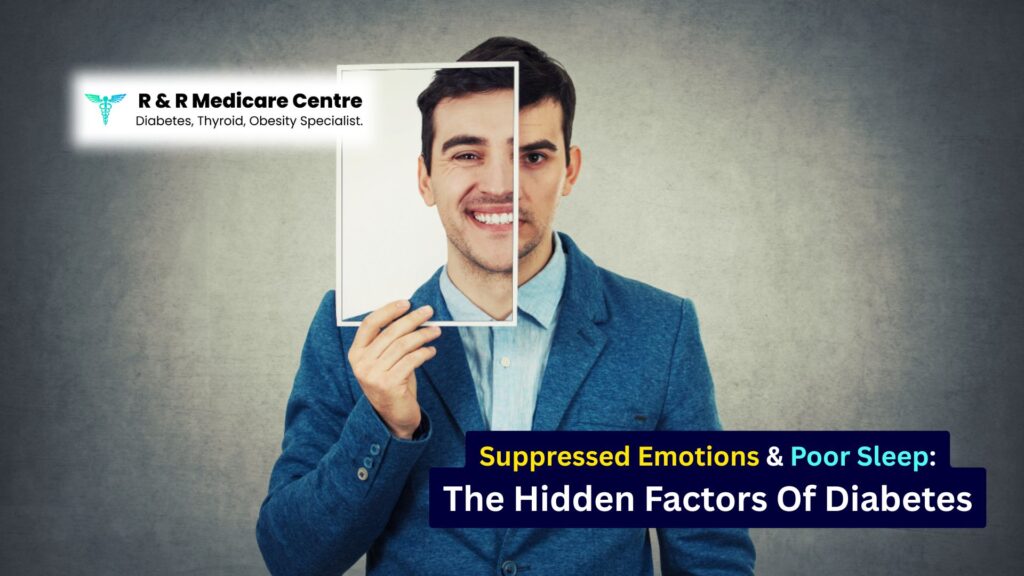Diabetes is no longer a health issue that only affects the elderly or those with a family history. Today, it’s becoming alarmingly common even among young adults and teenagers. While there are various medical reasons behind diabetes, one of the most overlooked yet significant contributors is our bad lifestyle. Yes, poor daily habits, lack of physical movement, emotional stress, and disturbed sleep patterns are now known to be a leading cause of diabetes.

How Our Daily Routine Has Changed
There was a time when life followed a natural rhythm. People used to wake up with the sunrise, stay active throughout the day, and unwind after sunset. Activities like walking, cooking from scratch, and doing chores by hand kept the body in motion. Today, the picture is quite the opposite.
We begin our day late, often glued to screens. Meals are rushed or skipped, sleep is irregular, and stress levels are constantly high. These changes may seem minor, but collectively, they can be a major cause of diabetes. Sedentary lifestyles reduce insulin sensitivity and disturb our body’s glucose regulation.
Sitting is the New Smoking
One of the biggest lifestyle problems today is excessive sitting. Be it in front of a computer at work, in traffic, or watching TV—our bodies are simply not getting the movement they need.

Unlike our grandparents, who remained physically active throughout the day, we have adopted a lifestyle where everything is within reach—groceries, food delivery, entertainment—all at the click of a button. This lack of movement leads to fat accumulation and poor metabolism, both of which are a direct cause of diabetes.
The Myth: “No Symptoms, No Check-Up”
A dangerous belief many people have is, “Why go for a health check-up when I feel fine?” Unfortunately, by the time symptoms of diabetes become visible—like fatigue, excessive thirst, or frequent urination—the disease may already be in an advanced stage.
Preventive health check-ups, even in the absence of symptoms, are crucial to early detection. Ignoring early signs or avoiding regular screenings is indirectly a cause of diabetes becoming a chronic, unmanageable condition.
Suppressed Emotions and Poor Sleep: The Hidden Factors
It’s not just physical habits that contribute to diabetes—your mental and emotional health plays a massive role. A lot of people suppress their emotions. They smile outside but are battling anxiety or sadness inside. This emotional disconnect increases stress levels, which elevates cortisol (the stress hormone). Over time, high cortisol levels interfere with insulin production and blood sugar control.

Even with a good diet, poor sleep and unmanaged stress can become a silent cause of diabetes. We often forget that rest is just as important as activity. Sleeping less than 6–7 hours per night or experiencing disturbed sleep on a regular basis puts your body in a state of chronic fatigue and hormonal imbalance.
The Multi-Faced Pressure of Modern Life
In today’s fast-paced world, people are constantly juggling roles—at work, at home, and in society. It’s common to find people who behave one way in the office and entirely different at home. This emotional strain leads to suppressed feelings, mismanaged mental health, and ultimately physical consequences.
Bringing work stress home, carrying personal tension into professional life, and hiding true emotions can create a cycle of mental and physical exhaustion. Over time, these internal pressures become a hidden cause of diabetes, especially when they go unchecked for years.
Stress Management: The Missing Lesson in Education

We’ve been taught how to calculate interest, manage bank accounts, and crack competitive exams. But have we ever been taught how to manage stress?
Stress management is not a luxury—it’s a necessity. The inability to process emotions, take breaks, or practice self-care is pushing an entire generation towards lifestyle-related diseases. Incorporating emotional well-being into our education system could help prevent future health crises like hypertension, obesity, and of course, diabetes.
What Can You Do to Break the Cycle?
Changing your lifestyle doesn’t require extreme measures. It begins with small, consistent steps:
- Move more – walk for 30 minutes daily, take the stairs, or stretch between work hours.
- Eat mindfully – Focus on home-cooked meals rich in fiber, proteins, and healthy fats.
- Manage stress – Try meditation, journaling, or therapy to handle emotional burdens.
- Prioritize sleep – Aim for 7–8 hours of quality sleep every night.
- Regular check-ups – Don’t wait for symptoms. Stay proactive about your health.
Each of these steps tackles a root cause of diabetes and helps in preventing or managing it effectively.
Conclusion
The rise in diabetes cases today is not just about genetics or aging—it’s about how we live. A poor lifestyle, marked by inactivity, poor sleep, emotional suppression, and constant stress, has become a major cause of diabetes. By making conscious choices and adopting healthier habits, we can not only reduce our risk but also inspire others to live better.
Remember, diabetes doesn’t develop overnight. It’s the result of years of neglect. It’s time to listen to your body before it starts shouting through symptoms. Small changes today can protect you from lifelong consequences tomorrow.
